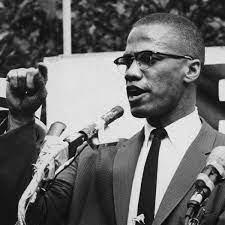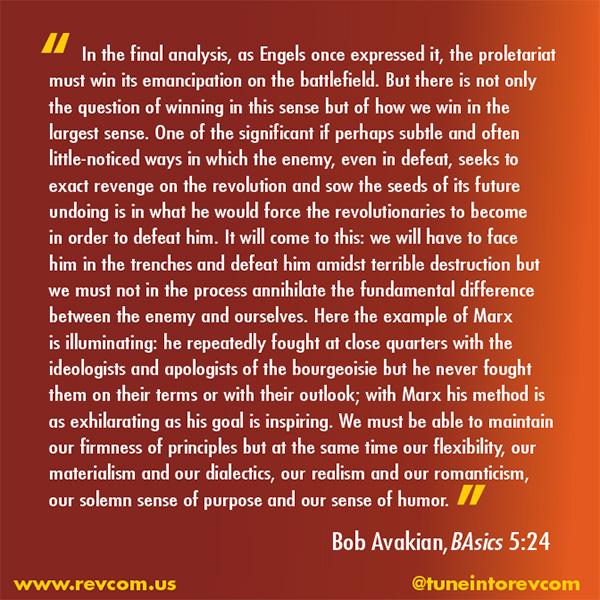
Malcolm X
In the 1960s, the Black revolutionary leader Malcolm X raised the slogan “By Any Means Necessary” as a call for the fight for the liberation of Black people in this country.
Recently, in the protests in support of the Palestinian struggle and against the genocidal attacks on Gaza, some people are raising the slogan “resistance by any means necessary.” Many of those doing this are upholding any and all of the forms of resistance to Zionist occupation and oppression of Palestinians as justified, including hailing and cheering what Hamas forces did against Israel on October 7. Hamas is the reactionary Islamist organization that controls the Gaza Strip region of Palestine. Hamas launched a brutal multi-pronged attack on Israel that took hundreds of lives, most of whom were intentionally targeted noncombatants, and seized hostages. These actions should not be upheld, and should not be justified.
The people doing this misrepresent what Malcolm actually was arguing for in the mid-’60s, taking it totally out of context. When Malcolm X raised and popularized the slogan “By any means necessary,” it was in relation to the fight against the systemic oppression of Black people in this country in the 1960s. In a speech he gave in 1964 he declared, “By Any Means Necessary. That’s our motto. We want freedom by any means necessary. We want justice by any means necessary. We want equality by any means necessary.” (from speech to Organization of African American Unity, 1964) But what Malcolm X was arguing for at that time was far different from what is being upheld and justified in support of Hamas today. It was in the context where non-violence was being insisted upon as a “holy principle,” particularly with regard to the struggle of Black people. It was, in large part, a polemic against Martin Luther King’s position, that the struggle for Black people must be non-violent.
Malcolm X insisted, in a speech he made in Detroit on February 13, 1965, “So, we only mean vigorous action in self-defense, and that vigorous action we feel we’re justified in initiating by any means necessary. Now the press, behind something like that, they call us racist and people who are ‘violent in reverse.’ This is how they psycho you. They make you think that if you try to stop the Klan from lynching you, you’re practicing ‘violence in reverse.’” (cited on Blackpast.org) “By any means necessary” was very important in drawing a line that the oppressed have a right to defend themselves against oppression, and to choose the means that will accomplish that.
It was most certainly not the intent of Malcolm to advocate or justify the killing of children, assaults on civilians, or other atrocities. It was a firm statement that, in their struggle for liberation, Black people could not, and would not, be bound by the terms set by the powers-that-be, or by anyone who tried to confine that struggle within the limits of what was “acceptable” under this system. In this light and in this sense, people should definitely uphold this statement by Malcolm X as just. But what is being upheld in relation to the actions of Hamas on October 7, and the justification for that under the banner of “Resistance By Any Means Necessary,” should not be upheld. It goes against the interests of the people for genuine liberation, in Palestine and everywhere people need to fight against oppression.
True emancipation will not be won by revenge or flipping the power relations, so that the last shall be first and the first shall be last. Bob Avakian has criticized the concept that “the ends justify the means,” where people argue “we are working for a liberating end goal, so whatever we do in the name of that goal is justified.” This harmful approach has led people to fight in ways that have only ended up reinforcing the system of imperialism that is responsible for the exploitation and oppression that people are struggling against. And rejecting that approach is one of the most important things that is new in the new communism that Bob Avakian has developed. He has insisted that the revolutionary movement for human emancipation must be led to fight in ways that are consistent with—are in line with—the goal for a communist society.
This is what he said about this as quoted in BAsics 5:24:
In the final analysis, as Engels once expressed it, the proletariat must win its emancipation on the battlefield. But there is not only the question of winning in this sense but of how we win in the largest sense. One of the significant if perhaps subtle and often little-noticed ways in which the enemy, even in defeat, seeks to exact revenge on the revolution and sow the seed of its future undoing is in what he would force the revolutionaries to become in order to defeat him. It will come to this: we will have to face him in the trenches and defeat him amidst terrible destruction but we must not in the process annihilate the fundamental difference between the enemy and ourselves. Here the example of Marx is illuminating: he repeatedly fought at close quarters with the ideologists and apologists of the bourgeoisie but he never fought them on their terms or with their outlook; with Marx his method is as exhilarating as his goal is inspiring. We must be able to maintain our firmness of principles but at the same time our flexibility, our materialism and our dialectics, our realism and our romanticism, our solemn sense of purpose and our sense of humor.
